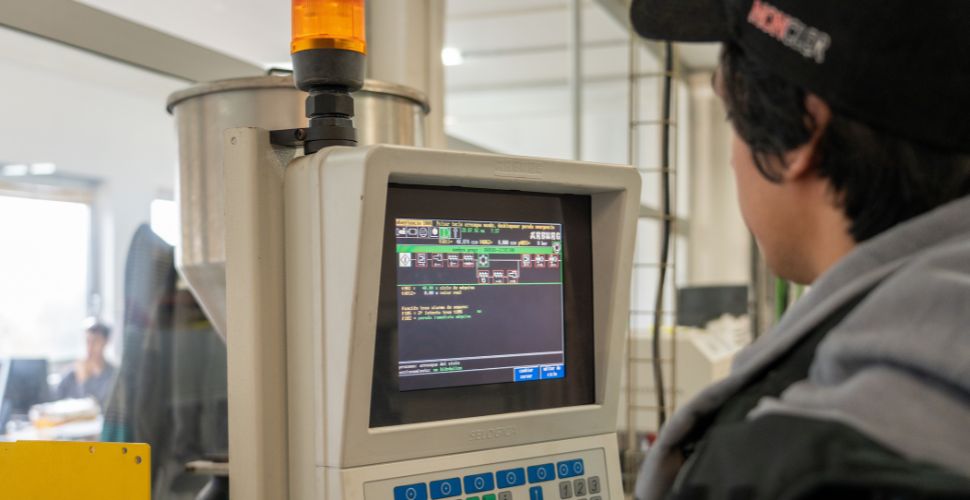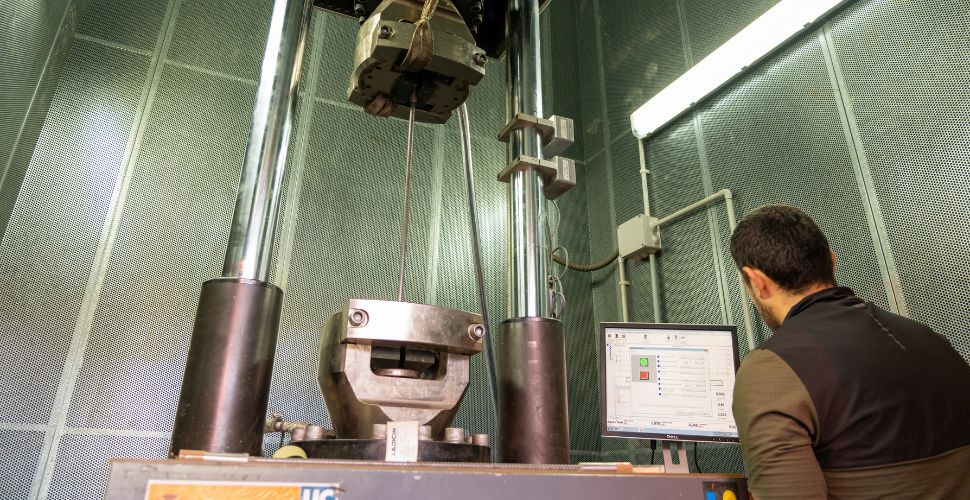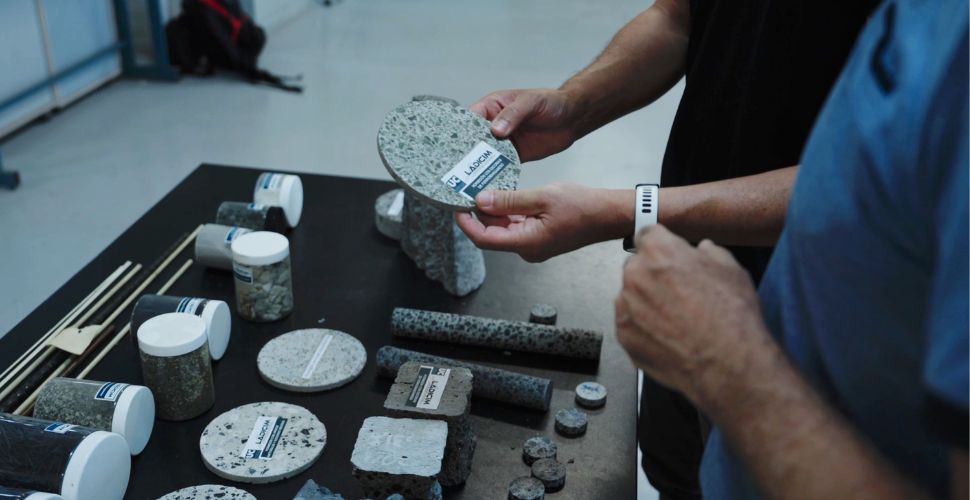LADICIM collaborates with CTC in the smart specialization of industrial processes in Cantabria
The Laboratory of the Materials Science and Engineering Division of the University of Cantabria participates in the research line of the FUTCAN project focused on the use of Artificial Intelligence to virtualize industrial prototyping processes
The Laboratory of the Materials Science and Engineering Division (LADICIM) of the University of Cantabria collaborates with the FUTCAN project, an initiative led by the CTC Technology Center focused on researching and validating new methodologies and technologies to improve efficiency, competitiveness and sustainability in industrial manufacturing.
FUTCAN is supported by the General Directorate of Industry, Energy and Mines of the Ministry of Industry, Employment, Innovation and Trade of the Government of Cantabria. It is co-financed by the European Regional Development Fund through the ERDF Operational Program 2021-2027 for Cantabria, under the grant line entitled ‘Grants for research projects with high industrial potential of technological agents of excellence for industrial competitiveness TCNIC’.
LADICIM’s collaboration with the ‘Strategic Position of Smart and Sustainable Specialization for the Factories of the Future in Cantabria’ focuses on the direct use of Artificial Intelligence to virtualize industrial prototyping processes. This is one of the three lines of work of the project, especially oriented to the automotive sector. The other two include the development of methods to facilitate access to Artificial Intelligence (AI) in manufacturing environments through Machine Learning, and the research of new coatings with nanomaterials that allow early detection and monitoring of degradation in industrial components and structures.
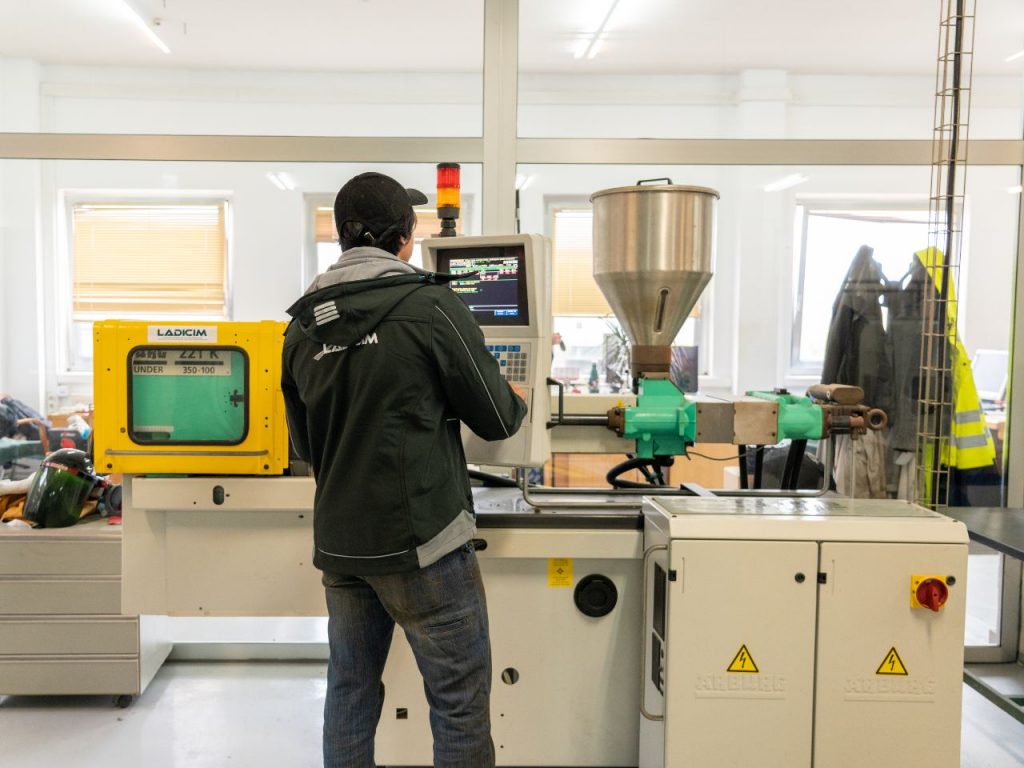
One of FUTCAN’s pilots is the optimization of the processes of a thermoplastic injector, a very common piece of equipment in the automotive industry that allows the manufacture of a wide variety of components and parts with very diverse physical and mechanical properties. The technological advances achieved will make it possible to reduce by at least 20% the time and materials used during production, thus contributing to the efficiency and competitiveness of the automotive sector in Cantabria.
In this context, the connection of LADICIM with the strategic pillars of FUTCAN is direct. The Laboratory accumulates extensive knowledge on polyamide, a thermoplastic used in the manufacture of engineering parts and technical components in the automotive, aerospace and electronics industries due to its excellent mechanical properties and abrasion resistance. In addition, it has developed several theses and works related to this material and injection equipment and has its own industrial injector to carry out research and tests. To all this must be added his extensive experience in the field of AI and Machine Learning. For the CTC Technology Center, this combination of knowledge and experience makes LADICIM a strategic ally to meet FUTCAN’s challenges.
“The Lab inspires a lot of confidence in us. Not only are they experts in materials, but they have the right equipment. In addition, they have the capacity to implement Machine Learning with us in the scientific work and to do it with a lot of mathematical rigor. Going hand in hand with LADICIM means that the risks of this challenge are lower,” says Dr. Alejandro Pérez, R&D&I project manager at CTC and coordinator of the initiative.
Data matters
FUTCAN offers LADICIM the opportunity to apply its knowledge to optimize industrial processes beyond the metal industry, a field in which it has developed several projects with that objective.
In the case of the FUTCAN project, the Laboratory brings its experience and capacity to generate real and relevant data from its industrial injector. The research, in this case, will focus on the manufacture of standardized tensile specimens, with the particularity that each batch will have been manufactured by modifying the different parameters of the injection molding machine. In a second stage, each of the batches produced will be physically and mechanically characterized. Thus, during the polyamide injection process, information will be collected on the manufacturing parameters and on the properties obtained.
“An injection molding machine is a highly complex piece of equipment in which a large number of parameters can be adjusted and controlled to optimize the injection process and guarantee the quality of the parts produced. This fact makes it an ideal manufacturing process for the purpose of the project, as it enables the generation of a large amount of data and will therefore facilitate the optimization of the process,” explains Professor Isidro A. Carrascal, technical director of LADICIM.
The manufacture of components is the result of a meticulous process that involves multiple stages of adjustment and homogenization. To obtain the desired result, it is necessary to invest time and materials, which translates into costs. That is why it is so important to optimize the parameters to be applied to the injection molding machine in order to produce the part with the desired properties.
“We define the input parameters to feed the model, which we modify on the injector. On the other hand, we define the output parameters, which consist,” describes Professor Carrascal, “of the physical and mechanical properties measured on the test piece resulting from the injection process. The research will allow us to obtain a complete data matrix that we will provide to CTC for its future developments”.
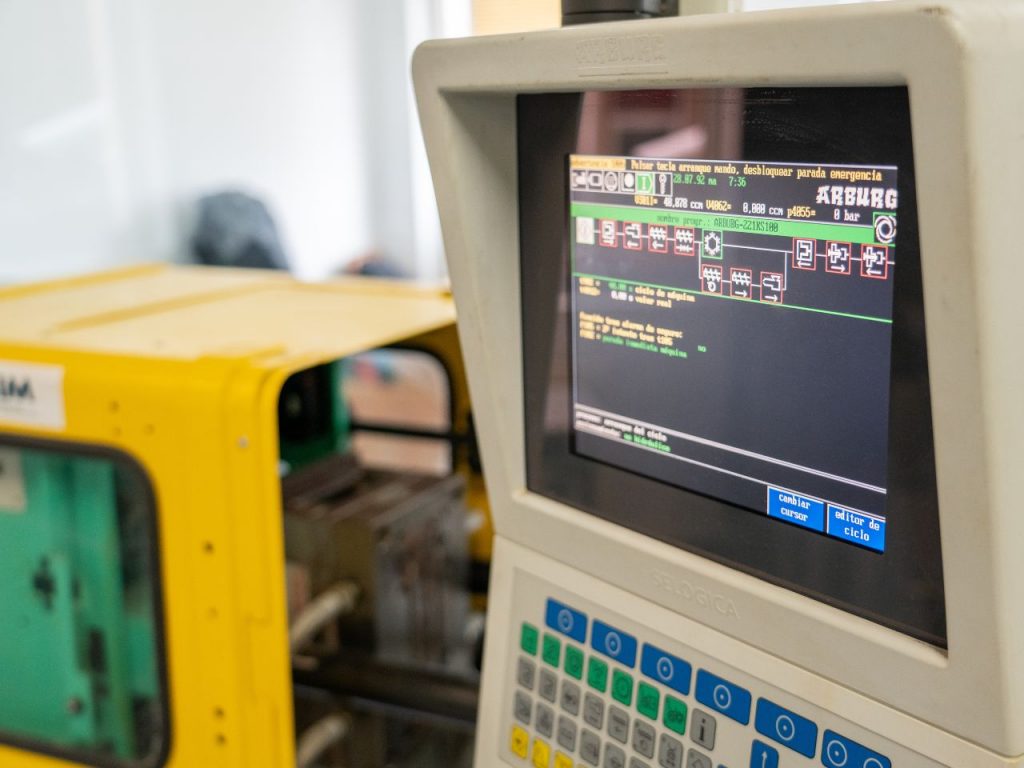
The next step will be up to CTC researchers, who, using advanced modeling and data analysis techniques, will be able to identify the best manufacturing parameters. “We have to present the Industry Council with a feasible challenge, a viable proposal, and that is why it is so important that CTC and LADICIM go hand in hand,” says Alejandro Perez. “The automotive sector is very demanding, and once we achieve the functional pilot of the injector, jointly developed, we will be able to enter other sectors more easily thanks to the Laboratory’s extensive knowledge in the field of materials science.”
Efficiency, sustainability and competitiveness
The data that the Lab will generate will be crucial to feed and calibrate the Machine Learning models that CTC will use to optimize the injection molding process. Implementing these advanced technologies will allow the machine to be programmed accurately from the start, saving time and material for the manufacture of the desired component.
Dialogue with potential customers is essential to implement improvements in their industrial processes, but FUTCAN’s work is being developed confidentially. “We explain the overall benefits to them and they tell us that a 20% reduction in material and production time could be achieved, but we believe that this ratio will increase once the intellectual property is protected and the finished product is presented,” Alejando Perez points out.
Reducing time and material helps to improve efficiency and sustainability and also plays a key role in the competitiveness of the automotive sector to avoid penalties for delays in the delivery of components. “Large component manufacturers are picky about meeting agreed lead times and the market is highly competitive. So an improvement in manufacturing times is key for the sector in Cantabria.”



